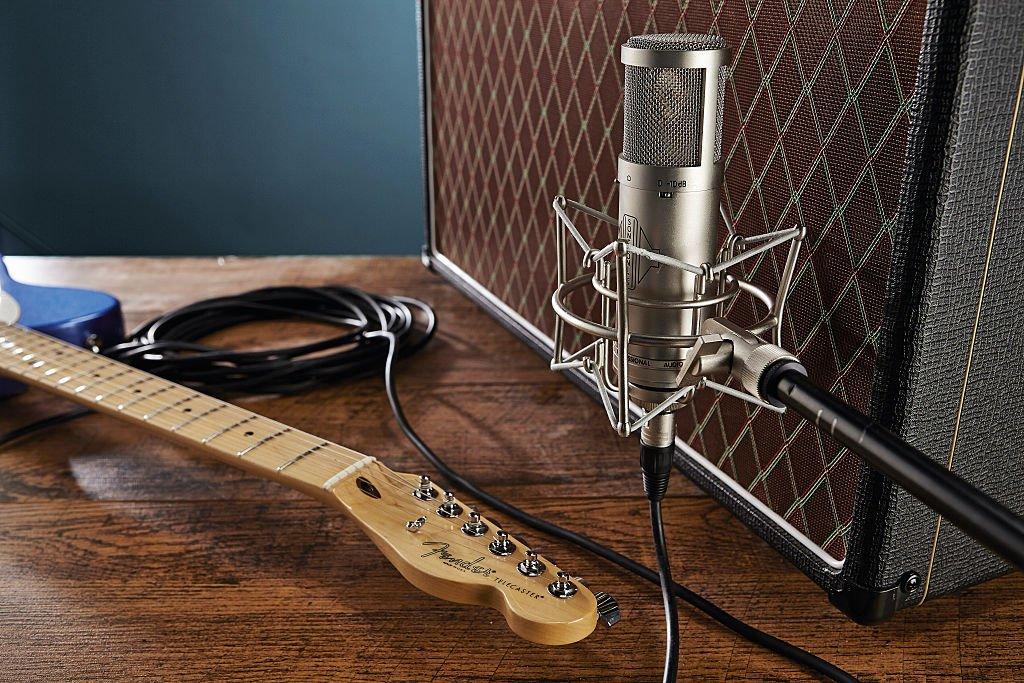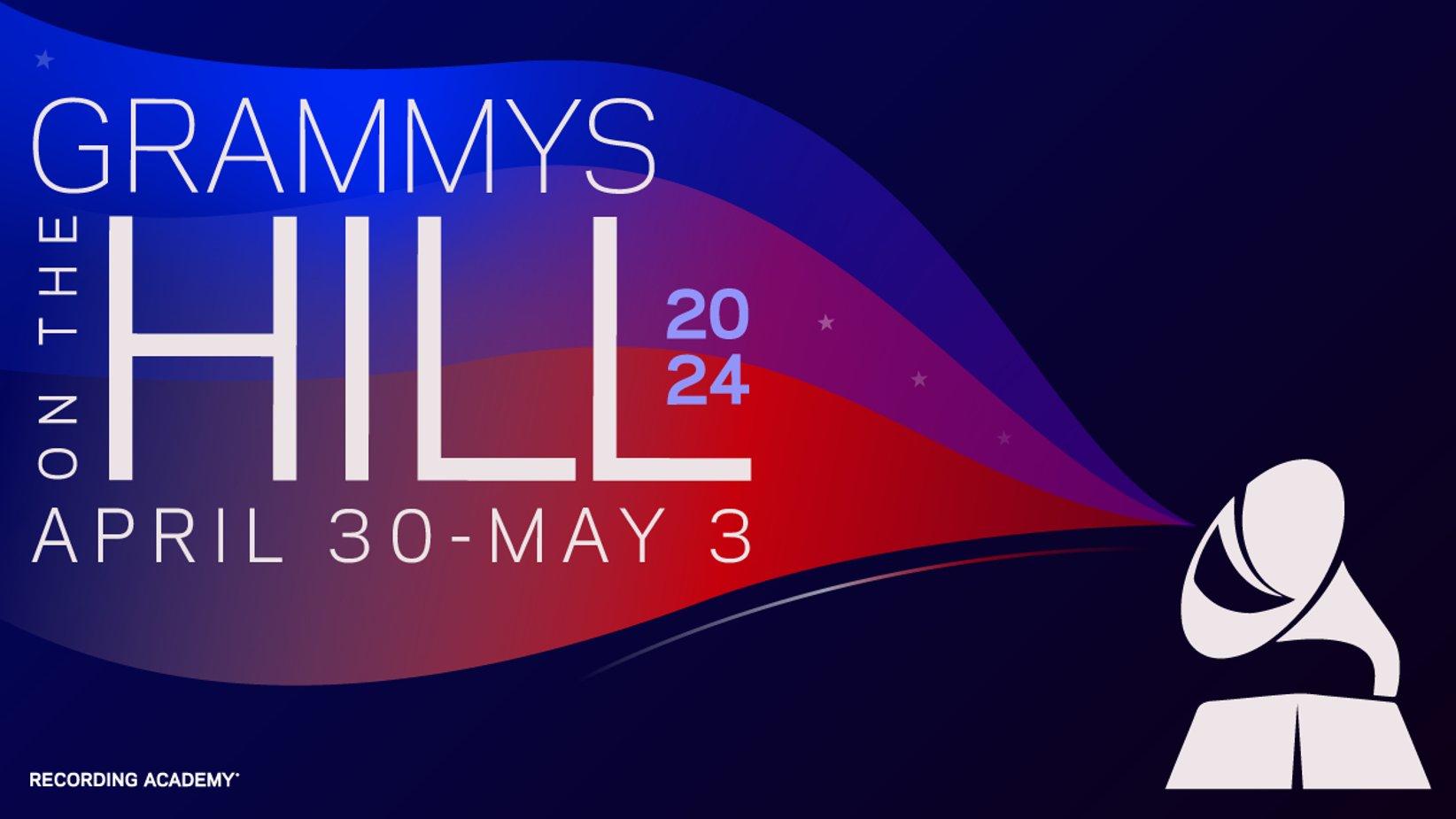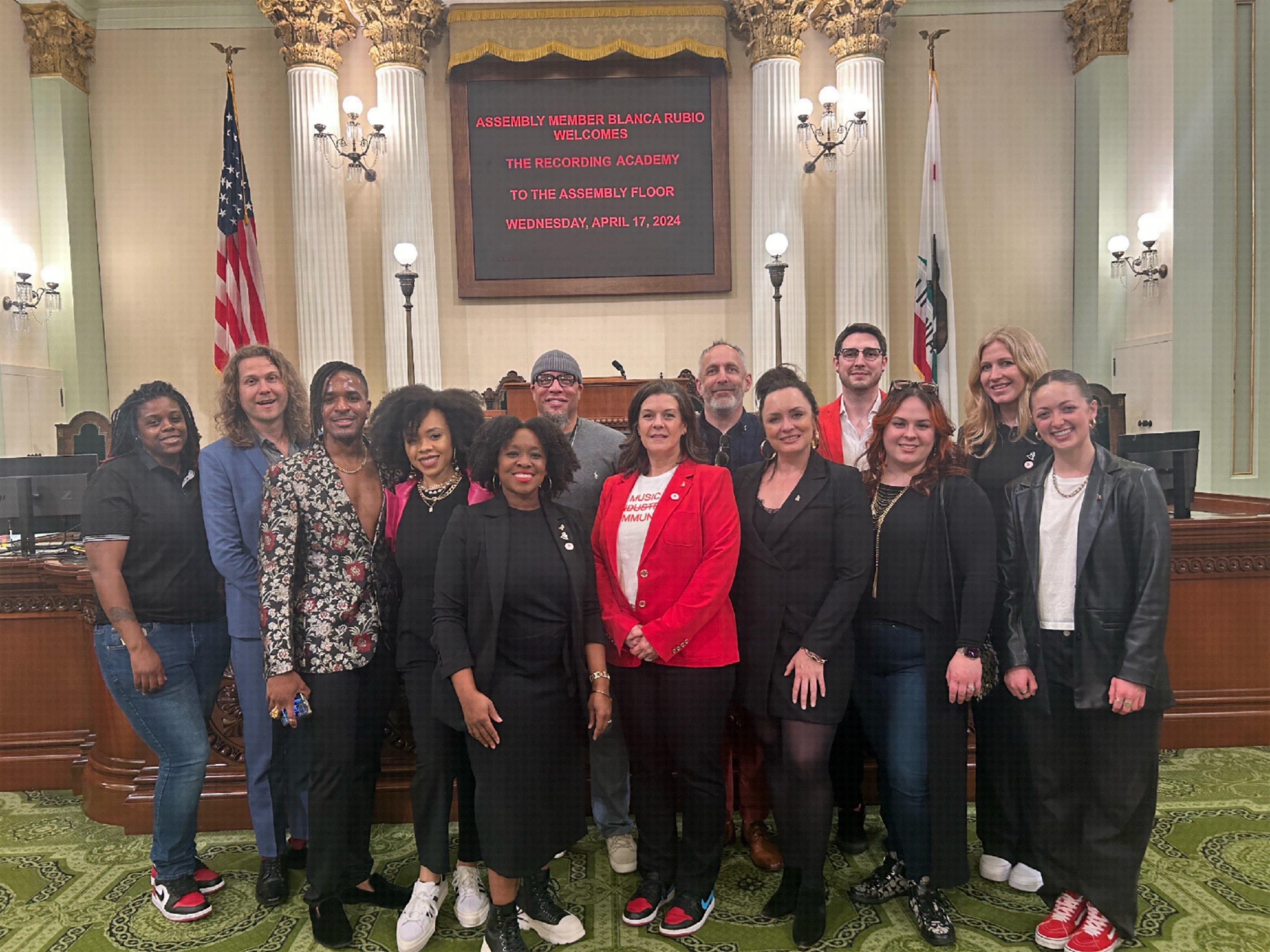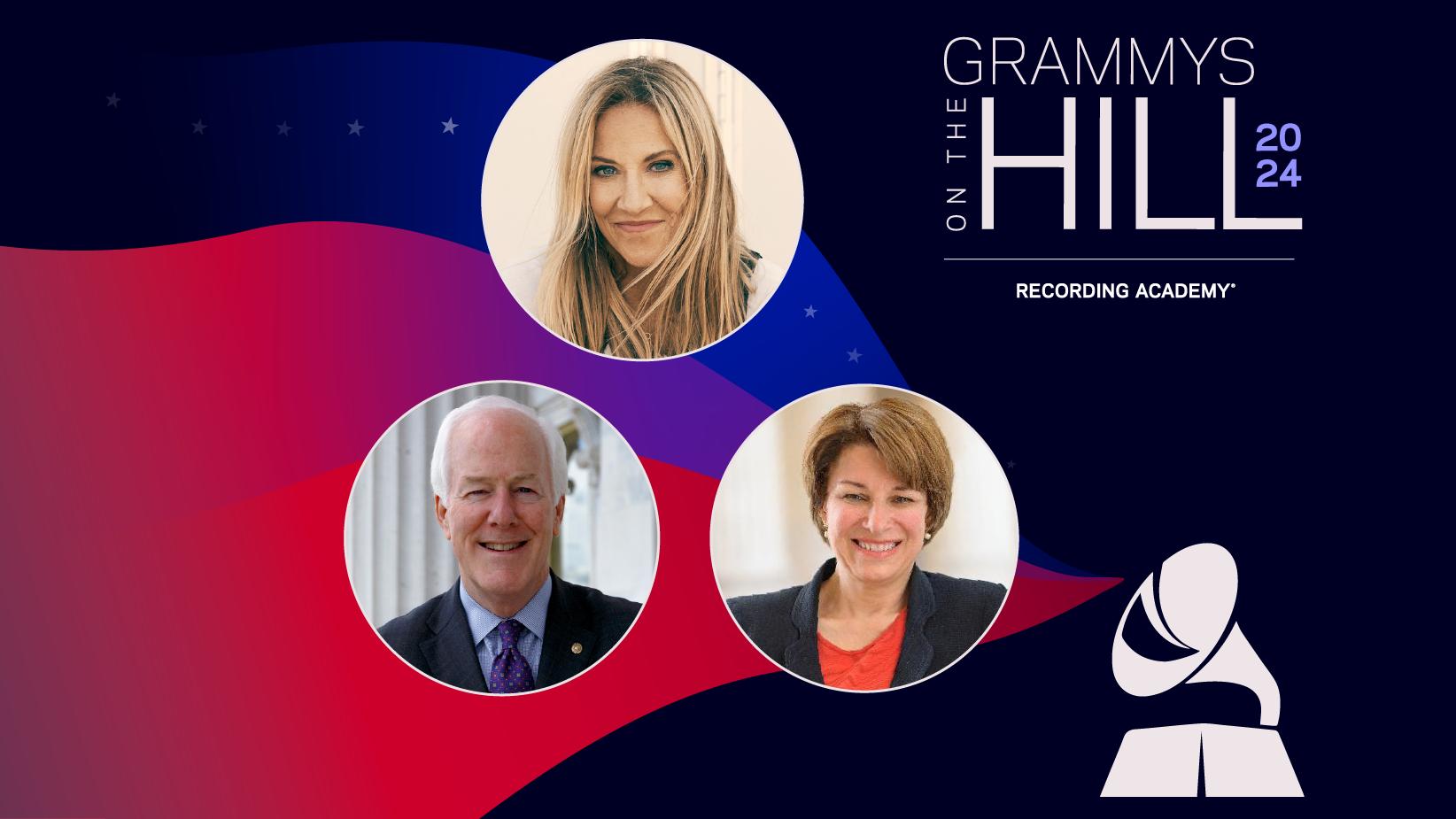Photo: Jesse Wild/Total Guitar Magazine/Future/Getty Images

news
Why The CASE Act Works For Everyone From Musicians To The General Public
Lawmakers, music professionals and the creative community weigh in with the truth on how the bill could immediately benefit those who it designed to protect
Momentum for the Copyright Alternative Small Claims Enforcement Act (CASE Act) has been mounting for months, and the bill's most recent win was passing 410-6 in the House of Representatives. But a faction of anti-copyright advocates have continued to publicize misleading positions on how the CASE Act will affect copyright infringement protection even after it received broad, bipartisan support in the House of Representatives. As the bill moves to the Senate, their posturing could delay the bill as they work with Senators, like Ron Wyden (D-Ore.), to prevent a vote.
The truth is the CASE Act stands to simplify and streamline the process for creators to defend their work against infringement, not to stifle fair copyright use, deny free expression or enable copyright troll harassment, as critics of the bill have erroneously claimed.
<blockquote class="twitter-tweet"><p lang="en" dir="ltr">In a <a href="https://twitter.com/sfchronicle?ref_src=twsrc%5Etfw">@sfchronicle</a> op-ed, GRAMMY winner Fantastic Negrito (<a href="https://twitter.com/MusicNegrito?ref_src=twsrc%5Etfw">@MusicNegrito</a>), details why the <a href="https://twitter.com/hashtag/CASEAct?src=hash&ref_src=twsrc%5Etfw">#CASEAct</a> is important for ALL music creators. <a href="https://t.co/89Av4zJmNp">https://t.co/89Av4zJmNp</a></p>— GRAMMY Advocacy (@GRAMMYAdvocacy) <a href="https://twitter.com/GRAMMYAdvocacy/status/1186337530049912832?ref_src=twsrc%5Etfw">October 21, 2019</a></blockquote> <script async src="https://platform.twitter.com/widgets.js" charset="utf-8"></script>
In fact, copyright trolling, where the troll attempts to coerce a legitimate copyright holder or user into court by bringing frivolous claims against them, is specifically safeguarded against in the CASE Act beyond even current federal law. The bill provides respondents with the opportunity to opt out of any case and grants the Copyright Claim Board the authority to award attorney fees up to $5,000 to the respondent, ban the claimant from filing for a year and even dismiss all pending cases filed by the claimant if the claimant is found to be acting in bad faith.
But what’s not erroneous is the relief that the CASE Act will deliver to a legion of creators and small businesses. The CASE Act serves as a huge help for musicians in so many ways beyond its protection from trolling by making it cheaper and quicker to file copyright infringement claims to protect their work. Also, by capping damages at $30,000, the bill empowers musicians who cannot afford the expensive legal fees associated with Federal court action.
The music community has rallied behind the CASE Act, with Recording Academy Chief Industry, Government & Member Relations Officer Daryl Friedman calling the latest passage in the House, "Another victory for music creators almost exactly a year after the Music Modernization Act was signed into law.” Friedman also underscores the critical next steps for the bill.
“We now look to the Senate and the White House to get this bill into law and ensure music makers have access to the copyright protection they deserve,” he told Complete Music Update.
And music creators are not the only type of creators who will benefit. Everyone from photographers to filmmakers to creative small business owners will be able to efficiently protect what they create – and for many of these members of the independent creative community, relatively low stakes copyright infringement can be high stakes to their survival.
"The biggest challenge is how expensive and complex it is to fight infringement in federal court," Lisa Dillon and Brian Welsh wrote in The Bend Bulletin’s guest column. The article, titled "Oregon creators deserve the CASE Act," directly addresses those constituents represented by Sen. Wyden.
"If an infringer is incompliant to your attempt to get reimbursed for your work, it’s virtually impossible for a solo-creator or small biz to have any real legal recourse," they continued, adding, "This bill is truly a no-brainer."
<blockquote class="twitter-tweet" data-conversation="none"><p lang="en" dir="ltr">The <a href="https://twitter.com/hashtag/CASEAct?src=hash&ref_src=twsrc%5Etfw">#CASEAct</a> would provide creators a streamlined, inexpensive path to fairly resolve small copyright infringement claims outside of court. <a href="https://t.co/Qou7AebSxY">pic.twitter.com/Qou7AebSxY</a></p>— GRAMMY Advocacy (@GRAMMYAdvocacy) <a href="https://twitter.com/GRAMMYAdvocacy/status/1171854377407004672?ref_src=twsrc%5Etfw">September 11, 2019</a></blockquote> <script async src="https://platform.twitter.com/widgets.js" charset="utf-8"></script>
And it is. Because ultimately, the general public stands to benefit from the passage of the CASE Act. As our country and our world move ever-faster into the internet age, the bill benefits all because it allows for fair protection of creators' work by establishing more efficient process to enforce infringement, not because it changes any of the free speech rights or laws that are essential to our democracy. Rep. Hakeem Jeffries (D-NY-8), who is a sponsor of the bill, answers criticism that the act threatens free speech online.
"The internet has provided many benefits to society. It is a wonderful thing, but it cannot be allowed to function as if it is the Wild West with absolutely no rules," Rep. Jeffries told The Verge. "We have seen that there are bad actors throughout society and the world who take advantage of the internet as a platform in a variety of ways. We cannot allow it."
He added, "The Internet doesn't change the Constitution."
With the CASE Act primed for a vote in the Senate, now is the time to contact your Senators and urge them to support all creators by co-sponsoring the act. Creators, copyright users and end users alike will thank you.
District Advocate Day 2019: Music Creators Raise Their Voices Across The U.S.

Photo: Graphic Courtesy of the Recording Academy
list
GRAMMYs On The Hill Awards 2024: Everything You Need To Know Including Mission, Goals, Honorees & Achievements
Get ready to dive into the heart of music advocacy. The Recording Academy's GRAMMYs on the Hill gears up for a week of impactful events in Washington D.C., celebrating the intersection of music and politics while advocating for creators' rights.
The Recording Academy's annual GRAMMYs on the Hill will kick off Washington, D.C.'s biggest week in music on Tuesday, April 30, with the 2024 GRAMMYs on the Hill Awards, followed by Advocacy Day on Wednesday, May 1, and the first-ever Future Forum on Friday, May 3.
For more than two decades, the Recording Academy has returned to Washington, D.C., to advocate for equality, fairness and justice in music law and celebrate the intersection of music and politics by honoring congressional leaders and music creators who lead the fight for creators’ rights.
This year, the Recording Academy GRAMMYs on the Hill music honoree is nine-time GRAMMY winner Sheryl Crow. A powerhouse of activism and philanthropy, Crow co-founded the Recording Artists' Coalition in 2000 to champion creators' rights with previous GRAMMYs on the Hill honoree Don Henley. Her relentless advocacy efforts span congressional testimonies and artistic expressions like her recent song "Evolution," and her fervent support of a plethora of charitable causes.
The awards will also honor Senators John Cornyn (R-TX) and Amy Klobuchar (D-MN.)
Cornyn and Klobuchar are the congressional honorees being recognized for their stalwart support of creators and their collaborative efforts championing key policies in support of the music community. Together, they have championed the Save Our Stages Act, which provided $16 billion to venues closed during the COVID-19 pandemic, the largest ever U.S. federal investment in the arts. This year, they are working to reform live event ticketing through the Fans First Act.
Read more: GRAMMYs on the Hill Awards 2024 Honorees Announced: Sheryl Crow, Sens. John Cornyn & Amy Klobuchar
As this year's GRAMMYs on the Hill draws near, discover all you need to know about the GRAMMYs on the Hill Awards Dinner, Advocacy Day and Future Forum during Washington D.C.'s biggest week in music.
What Is GRAMMYs on the Hill?
GRAMMYs on the Hill is a three-day event consisting of the GRAMMYs on the Hill Awards, Advocacy Day and this year's premiere event, the Future Forum.
Over the course of these events, music creators come together with members of Congress to advocate for the passage of legislation that will further improve those rights while celebrating those who have been exceptional in their support of music maker's rights.
At the Awards Dinner, the Recording Academy honors an individual or group from the music industry who has used their reach to advocate for, and take positive action in support of, advancing creator's rights. These honorees have gone above and beyond fighting for their peers. Additionally, the Recording Academy honors two elected officials who have been leaders in advancing creator's rights by supporting legislation and passing policy that benefits music creators.
During GRAMMYs on the Hill Advocacy Day, the Recording Academy brings recent GRAMMY winners and nominees to Capitol Hill to meet with Members of Congress and their staff. Throughout the day, these artists utilize meeting time to tell their stories and urge congressional offices to take action on key issues facing the music community.
This year, the Recording Academy is expanding GRAMMYs on the Hill to include one more day of programming on May 3 that will explore the evolving role of artificial intelligence in music and its ethical implications and future applications. The inaugural GRAMMYs on the Hill Future Forum will explore one of the music industry’s most pressing topics today — the impact of artificial intelligence on human creativity and connection. Programming will include engaging panel discussions around leveraging the potential power of AI and the ethical and political implications of this new technology.
Who Are Some Past GRAMMYs on the Hill Honorees?
For over 20 years, GRAMMYs on the Hill has recognized the achievements of people making an impact on creator's rights. Past honorees include:
Music icons:
13-time GRAMMY winner Pharrell Williams
Five-time GRAMMY-winning duo Jimmy Jam & Terry Lewis
Four-time GRAMMY Winner Yolanda Adams
Two-time GRAMMY winner Garth Brooks
15-time GRAMMY winner Alicia Keys
Three-time GRAMMY winning group Zac Brown Band
Seven-time GRAMMY winner John Mayer
Four-time GRAMMY winner Missy Elliot
Four-time GRAMMY winner Keith Urban
Three-time GRAMMY winner Kelly Clarkson
Five-time GRAMMY winning group Lady A
Three-time GRAMMY winner Gloria Estefan
Congressional Honorees:
Then-Vice President Joe Biden
Senate Majority Leader Chuck Schumer (D-NY)
House Democratic Leader Hakeem Jeffries (D-NY)
Former Speaker of the House Nancy Pelosi (D-CA)
Former Speaker of the House Kevin McCarthy (R-CA)
Former United States Secretary of State Hillary Rodham Clinton
Senate Majority Whip Dick Durbin (D-IL)
Senator Marsha Blackburn (R-TN)
Former Sen. Orrin Hatch (R-UT)
Former Sen. John McCain (R-AZ)
Senator Bill Cassidy, M.D. (R-LA)
What Has Advocacy Day Accomplished?
PEACE Through Music Diplomacy Act: In 2022, the Recording Academy worked closely with our GRAMMYs on the Hill honorees, Rep. Michael McCaul (R-TX) and Ted Deutch (D-FL) introduced the PEACE Through Music Diplomacy Act in the House of Representatives. And shortly following meetings during GRAMMYs on the Hill Advocacy Day, Senators Patrick Leahy (D-VT) and Thom TIllis (R-NC) introduced companion legislation in the Senate.
The bill, which directs the State Department to use music and music-related global exchange programs as a tool to build cross-cultural understanding and advanced peace abroad, was ultimately signed into law by President Biden in December 2022.
Music Modernization Act: In 2018, Rep. Bob Goodlatte brought the Music Modernization Act to the House floor during GRAMMYs on the Hill.
Throughout the Advocacy Day, our advocates met with congressional offices urging them to support this bill, which included provisions to improve compensation for songwriters, help pre-1972 legacy artists get paid by music streaming services, and recognize producers and engineers in music copyright protection.
In the months following GRAMMYs on the Hill, the bill was unanimously passed by the House and Senate. On Oct. 11, 2018 the historic bill known as the Orrin G. Hatch–Bob Goodlatte Music Modernization Act (aka Music Modernization Act) was signed into law.
Who Do The GRAMMYs on the Hill Awards, Advocacy Day and Future Forum Benefit?
The GRAMMYs on the Hill Awards Dinner, sponsored by City National Bank, is a charitable event benefiting the GRAMMY Museum. The GRAMMYs on the Hill Advocacy Day and this year's Future Forum, in partnership with the Human Artistry Campaign, benefit the music industry and the public at large by advocating for their rights and interests.
What Will The Recording Academy Be Advocating For At This Year's GRAMMYs on the Hill?
No AI FRAUD Act: Protecting the image, likeness and voice of individual creators from AI fakes through legislative measures such as the No AI FRAUD Act in the House of Representatives and the Senate’s No FAKES Act discussion draft.
Fans First Act: Reforming the live event ticket marketplace to better protect artists and fans through legislation including the Fans First Act and a similar House bill, the TICKET Act.
While the Recording Academy's Advocacy Team tirelessly tackles these critical issues throughout the year, this year's Advocacy Day and Future Forum serve as a significant and impactful continuation of these ongoing legislative efforts.
Be sure to stay engaged for opportunities to participate remotely during this year's GRAMMYs on the Hill.
Ticketing Reforms Make A Big Leap In Maryland: Here's What You Need To Know

Photo: Vanessa Eliasson
news
Academy Members Advance The Fight For Artists' Rights in State Capitals Across the Country
Recording Academy members from the Chicago, Los Angeles, and San Francisco Chapters convened with state legislators to address pressing concerns, including the misuse of individuals' likenesses in the age of generative artificial intelligence.
Last week, spanning from Springfield to Sacramento, the Recording Academy continued to empower artists and creators through impactful state Advocacy Days. These Advocacy Days highlighted the Academy's unwavering commitment to championing legislative measures that protect and favor artists in the ever-evolving digital landscape.
In Springfield, Illinois, Recording Academy members from the Chicago Chapter convened with members of the Illinois General Assembly to address pressing concerns surrounding the misuse of individuals likeness in the age of generative artificial intelligence.
Central to the discussion was the proposed legislation, HB 4875/SB 3325, which aims to modernize Illinois's Right of Publicity law to specifically address the challenges artists face from AI-generated creations. Since the legislation's introduction the Recording Academy has been a staunch advocate for HB 4875/SB 3325 and how it establishes key safeguards and enforcement mechanisms to ensure an individual's identity is not misappropriated.
Just 24 hours after Advocacy Day in Illinois, the legislation swiftly passed the House by a vote of 79-24 and is now headed to the Senate. Should it be enacted into law, Illinois would become the second state in the nation to proactively protect creators from having their likeness misused by generative AI, setting a vital precedent for other states and the federal government to follow suit. The Recording Academy's advocacy efforts in Springfield reflect a broader commitment to fostering an environment where artists can thrive without fear of exploitation or infringement.
Meanwhile, across the country in Sacramento, California, Recording Academy members from the San Francisco and Los Angeles Chapters joined California for the Arts for its annual Arts Advocacy Day, amplifying their voices in support of legislation that empowers creators and protects their interests. In addition to advocating for robust support for the arts and arts-related funding, among the bills discussed were AB2602 and AB1836, which tackle critical issues ranging from informed consent regarding the use of digital likeness to posthumous protections for deceased individuals.
AB2602 represents a significant step forward in empowering creators by granting them greater control over their digital identity. By requiring informed consent in contracts or negotiations involving digital likeness, the bill promotes transparency and fairness, ensuring that creators retain agency over how their likeness is represented and utilized.
Similarly, AB1836 addresses a glaring gap in California's current Right of Publicity law by extending protections to include deceased creators. In an era dominated by AI-generated replicas, safeguarding individuals' likeness from unauthorized use, even after death, is paramount to preserving their legacy and protecting their families' interests.
As Recording Academy members continue to advocate tirelessly on behalf of artists nationwide, these advocacy days serve as a reminder of the Academy's pivotal role in shaping legislation that fosters a more equitable and supportive environment for creators. By working with creators and amplifying their collective voice, the Academy is effecting meaningful change and paving the way for a brighter future for the music community.
The New York State Senate Passes Bill to Protect Creative Expression: Here's What You Need To Know

Photos (L-R): U.S. Senate Photographic Studio; Victoria Will; U.S. Senate Photographic Studio - Frank Fey
news
GRAMMYs On The Hill Awards 2024 Honorees Announced: Sheryl Crow, Sens. John Cornyn & Amy Klobuchar
The annual event hosted by the Recording Academy in Washington D.C., will celebrate music and advocacy by bringing together congressional leaders and artists to honor those who champion creators' rights.
On Tuesday, April 30, the Recording Academy will host its annual GRAMMYs on the Hill Awards, Washington's premier annual celebration of music and advocacy, bringing together congressional leaders and music makers to recognize those who have led the fight for creators' rights.
Sponsored by City National Bank and benefitting the GRAMMY Museum, this year's awards will honor nine-time GRAMMY winner Sheryl Crow and Senators John Cornyn (R-TX) and Amy Klobuchar (D-MN) for their contributions to support music creators. Hosted by singer and actress Candiace Dillard Bassett, the awards dinner will be held at the Hamilton Live in Washington, D.C., and will feature live performances and special guests.
"Protecting the rights of creators lies at the core of the Recording Academy's mission," said Harvey Mason jr., CEO of the Recording Academy. "GRAMMYs on the Hill is an opportunity to celebrate the artists and our nation's leaders who champion this cause, and to acknowledge music's unifying power. We're grateful to Sheryl and Sens. Cornyn and Klobuchar for their tireless efforts in safeguarding the music community and are thrilled to be recognizing them later this month in our nation's capital."
"Receiving this award from the Recording Academy is a tremendous honor for me, because protecting the rights of creators is more important now than ever before,” said Crow. “In this age where technology is changing the world faster than we can adapt, we need clear eyes to see both the opportunities and the challenges ahead, so that artists are not disadvantaged any more than they already are. Music nourishes our humanity, and I am proud to be recognized as an advocate for the protection of the people who make it."
"As a Texan, a love of live music is in my blood, and I've been proud to lead the charge on legislation that helps artists, entertainers, and venues meet the needs of their fans, including the Save Our Stages Act and the Fans First Act," said Sen. Cornyn. "I want to thank the Recording Academy for honoring me, and I look forward to continue to work on behalf of performers and fans across Texas and the nation."
"It's an honor to be recognized by the Recording Academy, an organization that uplifts performers, songwriters, and other music professionals in our country," said Sen. Klobuchar. "Music has the power to bring us together and it is something we can never take for granted. That’s why I fought to pass the bipartisan Save Our Stages Act with Senator Cornyn to ensure independent arts venues survived the pandemic, and why we are working together to improve the ticketing experience with the Fans First Act. There's nothing like live music and concerts, and I remain committed to ensuring artists can continue to share their music with the fans who love it."
Crow has dedicated much of her life to activism, supporting policies and philanthropic endeavors close to her heart. In 2000, she co-founded the Recording Artists' Coalition with previous GRAMMYs on the Hill honoree Don Henley to protect creators' rights and change unfair industry practices. Her advocacy for artists and songwriters continued through congressional testimony, editorials, artist petitions, and more. In 2009, the Recording Artists' Coalition formed an alliance with the Recording Academy to continue its mission as a program within the Academy's Advocacy office. Recently, she has been vocal about the threat that AI presents to music creators, including on her new song "Evolution," which grapples with the future impact of artificial intelligence on humanity and the planet. As a philanthropist, Crow is known for her passionate support of multiple charities, including MusiCares, The Breast Cancer Research Foundation, The World Food Program, Feeding America, ADOPT A CLASSROOM, the Elton John AIDS Foundation, Pelotonia, the Delta Children's Home and many other worthy causes.
Read more: How The Recording Academy Is Redoubling Its Efforts To Protect Creators From AI Risks
Crow is a nine-time GRAMMY winner and was inducted into the Rock and Roll Hall of Fame in 2023. Her first nine studio albums have sold 35 million copies worldwide; seven charted in the Top 10, and five were certified for multi-platinum sales. Her songs defined the third wave of feminism, a rocker's ability to sweep the pop charts without losing any edge and enough wide-open Midwestern joy to captivate the world.
Cornyn and Klobuchar are the congressional honorees being recognized for their stalwart support of creators and their collaborative efforts championing key policies in support of the music community. During the COVID-19 pandemic, Sens. Cornyn and Klobuchar provided a critical lifeline for music through the Save Our Stages Act, which provided $16 billion in federal assistance to shuttered venues and represents the largest federal investment in the arts in U.S. history. In this Congress, they are working to reform live event ticketing through the Fans First Act. Introduced in December 2023, the legislation would address flaws in the ticketing marketplace by increasing transparency, protecting consumers from deceptive practices, and holding bad actors accountable.
The day after the event, on May 1, the Recording Academy will host the annual GRAMMYs on the Hill Advocacy Day, which brings current and past GRAMMY winners and nominees, along with other esteemed industry leaders, to meet with lawmakers to discuss issues facing today's music creators. The day is recognized as Capitol Hill's largest and most prestigious legislative event for music. This year, music creators will convene with members of Congress to advance key issues that the Academy and its members continue to advocate for, including:
Protecting the image, likeness and voice of individual creators from AI fakes through legislative measures such as the No AI FRAUD Act and the No FAKES Act discussion draft.
Reforming the live event ticket marketplace to better protect artists and fans through legislation including the Fans First Act and the TICKET Act.
For the first time in 2024, GRAMMYs on the Hill will expand beyond the traditional two-day event to reflect Music's Biggest Week in Washington. On May 3, the GRAMMYs on the Hill Future Forum will be held in partnership with the Human Artistry Campaign, and will explore the impact of artificial intelligence on the music community.
Since its inception, GRAMMYs on the Hill has hosted award-winning artists and applauded congressional leaders alike, including 13-time GRAMMY winner Pharrell Williams, then-Vice President Joe Biden, two-time GRAMMY winner Garth Brooks, former United States Secretary of State and Sen. Hillary Rodham Clinton (D-NY), four-time GRAMMY winner Missy Elliott, former Sen. Orrin Hatch (R-UT), 28-time GRAMMY winner Quincy Jones, seven-time GRAMMY winner John Mayer, former Speakers of the House Nancy Pelosi (D-CA) and Kevin McCarthy (R-CA), 16-time GRAMMY Winner Alicia Keys, U.S. Senate Majority Leader Chuck Schumer (D-NY), and more. The annual advocacy event has also led to several major legislative wins for the music industry, most notably the Music Modernization Act.
Ticketing Reforms Make A Big Leap In Maryland: Here's What You Need To Know

Photo: Aaron Foster via Getty Images
news
Ticketing Reforms Make A Big Leap In Maryland: Here's What You Need To Know
This legislation introduces a series of pivotal measures aimed at safeguarding consumers and enhancing transparency in the ticketing industry.
The Recording Academy celebrated last week the advancement of improved ticketing reforms as Maryland achieves a groundbreaking milestone with the passage of SB 539. This legislative triumph not only means a new era of consumer and artist protections for live event tickets, but also positions Maryland as a national leader in holding ticket resellers accountable for fraudulent and deceptive practices hosted on their platforms.
"While fans suffer because of this broken system, so do artists" declares a collective statement of support from the Fix the Tix Coalition, which includes the Recording Academy as a founding member. "Predatory resellers view tickets as nothing more than commodities to be traded for outrageous sums, throwing away the cultural and communal value they provide for our society. They exist to undermine the hard work, talent, and livelihoods of artists, inserting themselves as unnecessary and unwanted middlemen who make their money off the backs of the artists and venues who partner to make these events happen."
This legislation introduces a series of pivotal measures aimed at safeguarding consumers and enhancing transparency in the ticketing industry. First, the bill prohibits deceptive practices such as the selling of speculative or counterfeit ticket sales, shielding concertgoers from exploitative practices used by some ticket brokers and resellers. Second, online ticket resale platforms will face increased accountability under Maryland's Consumer Protection Act.
Additionally, transparent pricing practices will be enforced throughout the ticket purchasing process, ensuring consumers have clear and accurate information. Most notably, this includes standards that ensure a breakdown of the face value price, and any fees, is made clear to the consumer throughout the purchase.
"We're getting used to paying these exorbitant prices. It's funny, now if you get a ticket for face value, that's apparently a big deal," stated Delegate C.T. Wilson, who introduced the legislation in Maryland's House. "That shouldn't be a big deal. We've been tricked into accepting this."
The enforcement of SB 539 seeks to dismantle predatory practices that have long plagued the ticketing industry. From the moment a show is announced, genuine fans are confronted with the uphill battle against scalpers and resellers, who exploit loopholes and employ deceptive tactics to profit at the expense of both fans and artists.
"Legislation like SB 539 is vital to protecting fans, preserving equitable access to entertainment, and restoring balance to the currently broken ticketing ecosystem," the collective statement emphasizes. By removing the profit motive from these practices, such as using illegal bots and price gouging, Maryland's bold legislative actions sets a precedent for other states to follow suit in protecting consumer rights and ensuring a better concert experience for fans and artists alike.
The Recording Academy was one of the many stakeholders who actively worked to pass the legislation and will continue to work towards equitable ticketing practices across the country. There is a collective aspiration that the passage of this legislation in Maryland will serve as a catalyst for change at both the local and federal level.
The Academy remains a staunch advocate for ticketing reform, ensuring that every fan can enjoy the magic of live entertainment without fear of deception or exploitation.
The New York State Senate Passes Bill to Protect Creative Expression: Here's What You Need To Know
